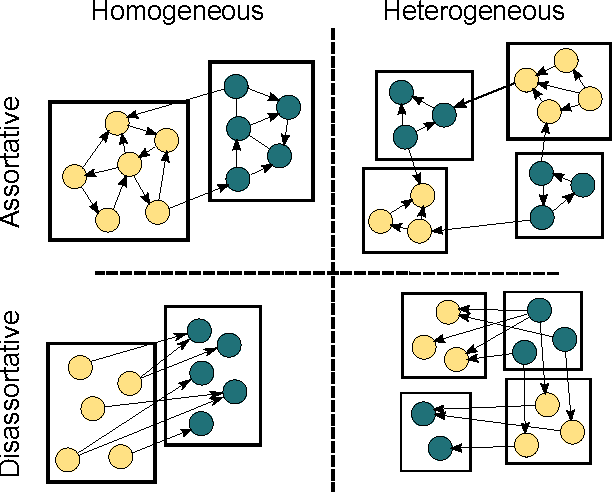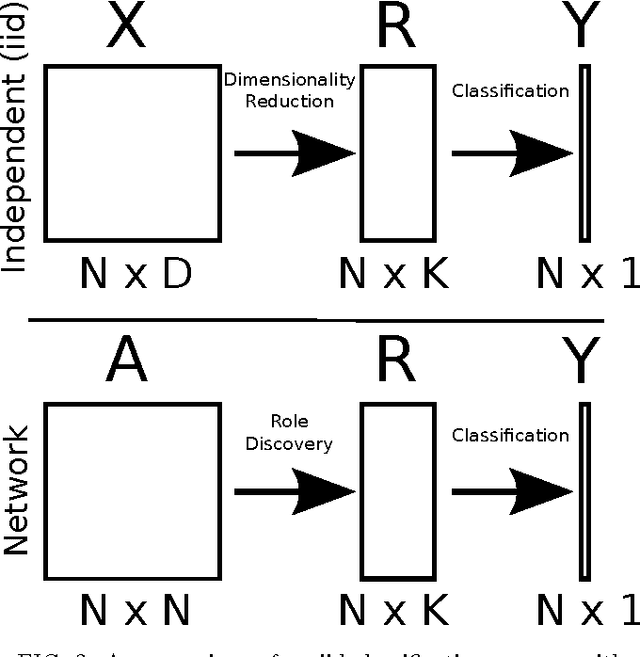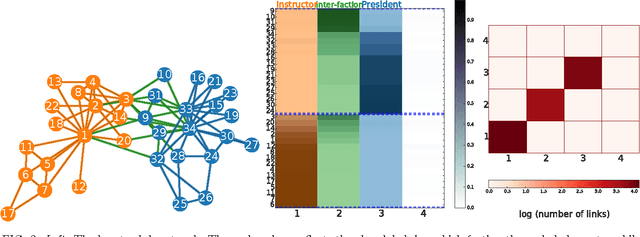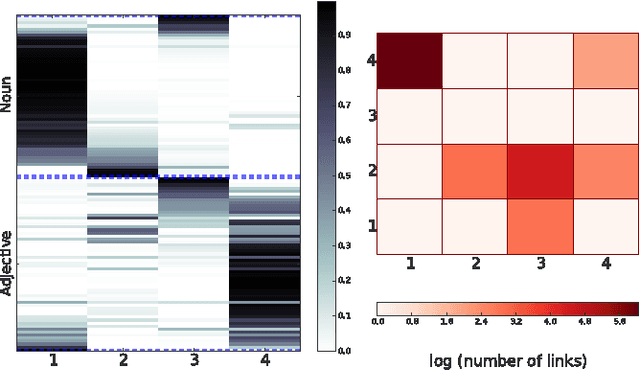Active Discovery of Network Roles for Predicting the Classes of Network Nodes
Paper and Code
Mar 18, 2014



Nodes in real world networks often have class labels, or underlying attributes, that are related to the way in which they connect to other nodes. Sometimes this relationship is simple, for instance nodes of the same class are may be more likely to be connected. In other cases, however, this is not true, and the way that nodes link in a network exhibits a different, more complex relationship to their attributes. Here, we consider networks in which we know how the nodes are connected, but we do not know the class labels of the nodes or how class labels relate to the network links. We wish to identify the best subset of nodes to label in order to learn this relationship between node attributes and network links. We can then use this discovered relationship to accurately predict the class labels of the rest of the network nodes. We present a model that identifies groups of nodes with similar link patterns, which we call network roles, using a generative blockmodel. The model then predicts labels by learning the mapping from network roles to class labels using a maximum margin classifier. We choose a subset of nodes to label according to an iterative margin-based active learning strategy. By integrating the discovery of network roles with the classifier optimisation, the active learning process can adapt the network roles to better represent the network for node classification. We demonstrate the model by exploring a selection of real world networks, including a marine food web and a network of English words. We show that, in contrast to other network classifiers, this model achieves good classification accuracy for a range of networks with different relationships between class labels and network links.
 Add to Chrome
Add to Chrome Add to Firefox
Add to Firefox Add to Edge
Add to Edge